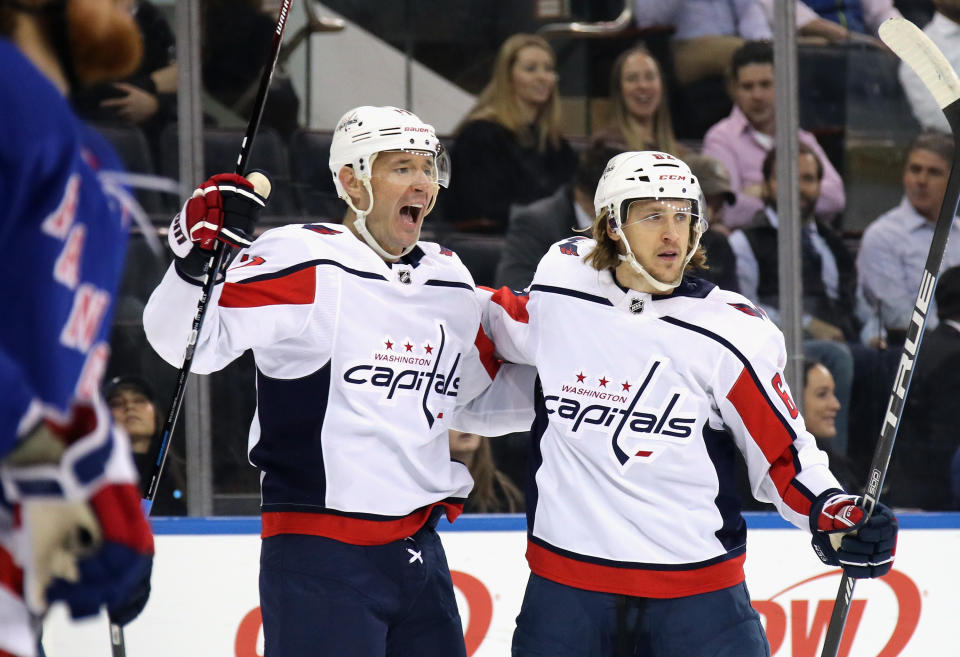What happens to teams that heavily invested into potentially lost season?
There are myriad discussions happening in the NHL offices (or at least from one isolated bunker to the next over Skype or Hangouts), and for that reason, it’s possible that this potential issue hasn’t even registered to this point.
Still, it seems worth asking what, if anything, will happen to the teams that invested deeply into this season now that there’s no promise it will reach its conclusion?
We are just three and a half weeks removed from the NHL’s trade deadline and the feverish exchange of assets leading into the stretch run. Thirty-two trades were completed on deadline day alone (and many more in the lead-up to it), with six first-round picks changing hands as NHL executives made their final moves to set their teams up for success for this season or down the road, be it at the draft or the years to come.
Because the worldwide COVID-19 pandemic is threatening to wipe away the remainder of the regular season and potentially the Stanley Cup Payoffs entirely, there are several teams at risk of having wasted valuable assets for nothing.

Thankfully, be it the increased attention to asset management or just simple risk aversion given the uncertain nature of the NHL’s postseason, most executives managed to mitigate risk in their efforts to improve their rosters.
Most notably, the steepest price paid in the lead-up to the deadline for a rental asset (or a player scheduled to hit unrestricted free agency this summer) was probably the package the Vancouver Canucks sent to the Los Angeles Kings for Tyler Toffoli, which included prospect Tyler Madden and a second-round pick.
Four other second-round selections were used to land players without term remaining on their current deals, which includes the Golden Knights acquiring Robin Lehner, the Capitals adding Brenden Dillon, the Blues trading for Marco Scandella, and the Islanders bolstering their defense corps with Andy Greene.
No doubt these teams will feel shortchanged, but there is a big difference between parting with a futures ticket selected in the mid-to-late second round and a first-round selection with potential lottery implications.
Thankfully, if the NHL does consider some sort of compensation program, it can omit the first round entirely. As mentioned, six first-round picks in the 2020 draft were sent away for immediate help, with five players acquired with remaining term and the other — Jean-Gabriel Pageau — signed to a contract extension almost immediately after his acquisition was made official.
For the cost of first-, second- and conditional third-round picks, Pageau is scheduled to be with the Islanders for another six seasons. Meanwhile, Brady Skjei has another four years left on his deal after his trade from the Rangers to Carolina, Jason Zucker has three seasons remaining after his move from Minnesota to Pittsburgh, while former Ducks forward Ondrej Kase has one more season with the Bruins before stepping into restricted free agency.
Clearly, the Tampa Bay Lightning accepted the most risk by dealing first-round selections (plus) in separate deals to acquire Blake Coleman and Barclay Goodrow, who will both be unrestricted free agents in 2021 in the event they aren’t extended. Still, as legitimate Stanley Cup contenders and perhaps front runners for the grail, what they lose at the upcoming draft pales in comparison to potentially forfeiting one of two cracks at the Stanley Cup with their bolstered roster intact.
If the season is indeed canceled, there’s reason to consider some sort of compensation process. It would be within reason given the circumstances, and perhaps not terribly extensive. Certainly, a team like the Washington Capitals would champion the cause after using second- and third-round picks to bolster their lineup with Dillon and sniper Ilya Kovalchuk.
But there’s one thing that could throw a wrench into it: Taylor Hall.
Acquired by the Arizona Coyotes just before the holiday freeze for a package that included a first-round draft pick and prospects, Hall is a special case. While the Coyotes had and likely continue to have every intention of trying to sign the former MVP, they have not been able to come to an agreement to this point, and the risk of losing Hall at the end of the season seems to have only increased.
It wouldn’t be as bad of a look to have Hall for just a fleeting time if the Coyotes were in the position of most teams willing to roll the dice on expiring assets — which is, in the playoffs.
So if the NHL does work out some sort of system to mitigate loss for teams that invested heavily into a lost season, are the Coyotes, seated fifth in the Western Conference wild-card chase, rewarded for their apparent miscalculation?
Just one more thing to consider on top of another consideration as the NHL navigates these uncharted waters.
More NHL coverage from Yahoo Sports

 Yahoo Sports
Yahoo Sports 


